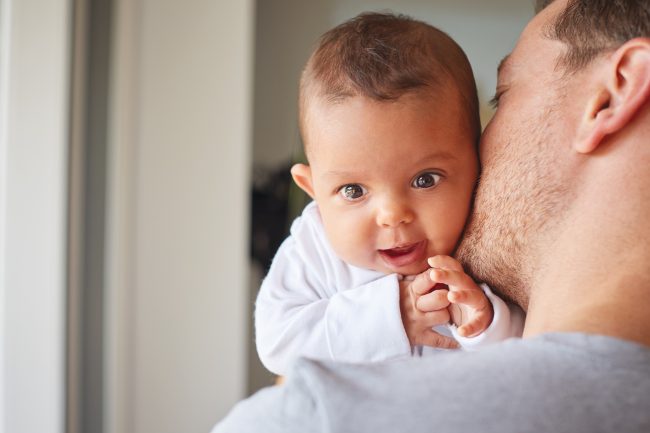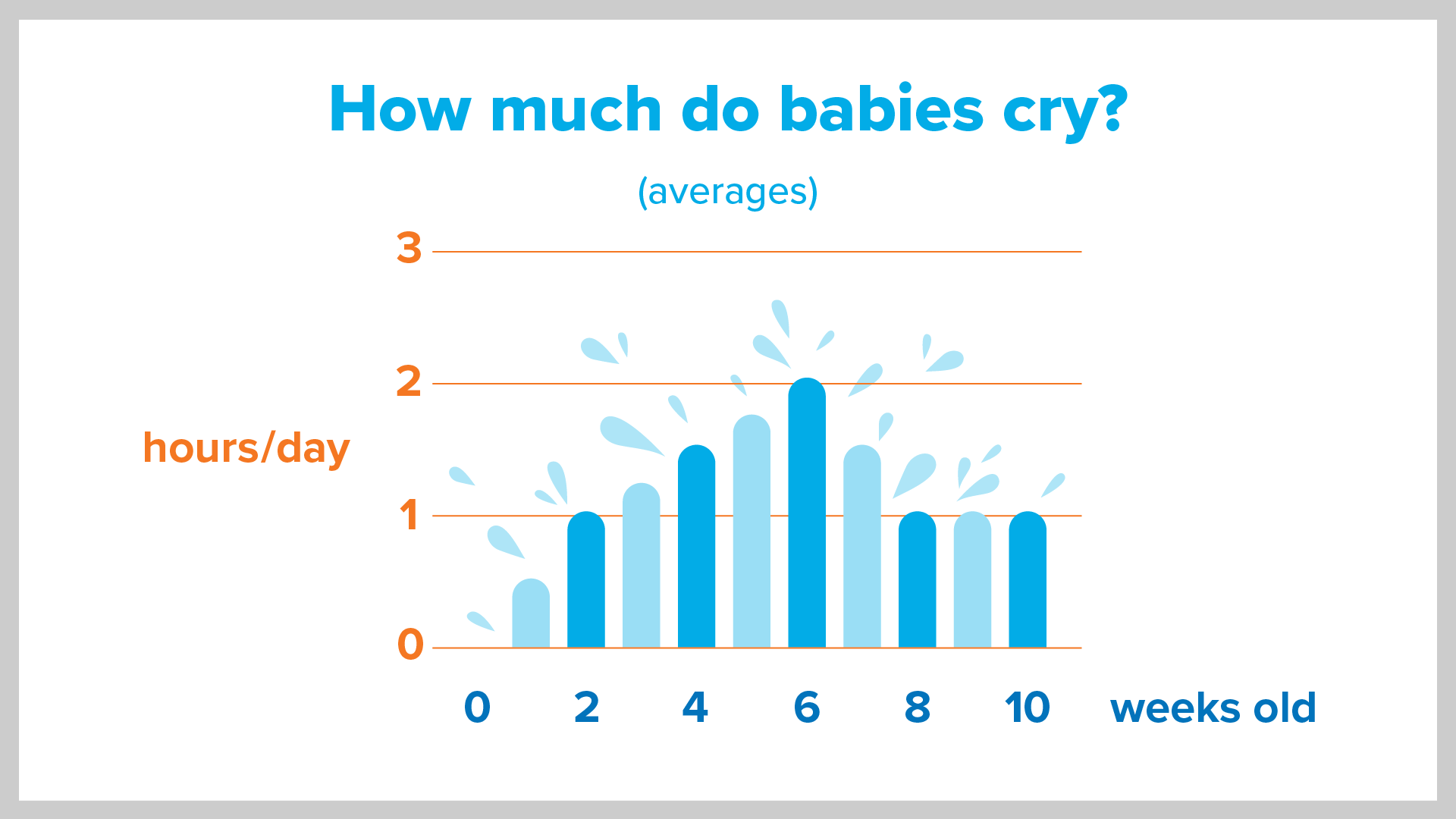Crying is your baby’s way of talking to you. Over time, you’ll start to recognize what different cries mean but in the beginning, it can be hard to tell. That’s OK. Every parent has moments when they’re not sure what baby needs.

Ways to Comfort Your Baby:
- Swaddle them snugly in a soft blanket
- Rock or sway gently
- Use a baby carrier so they can hear your heartbeat
- Speak, hum or sing softly
- Offer a clean finger or pacifier for sucking
If you’ve tried everything and your baby still cries, you’re not alone. Call the Birth to Five Helpline’s Fussy Baby Program at 877-705-KIDS (5437) for support and tips.

Understanding Colic
Some babies cry a lot—especially in the evening—and nothing seems to help. If this sounds like your baby, they might have colic. It’s common between 2 weeks and 4 months and doesn’t mean something is wrong.
Try these ideas:
- Make sure your baby isn’t too hot or too cold
- Turn on a calming sound like white noise or a vacuum
- Hold them on their side or stomach (but always lay them on their back to sleep)
- Offer a pacifier
- Feed slowly and burp often
Talk to your doctor to rule out any health issues. Most babies grow out of colic by 3–4 months.

Help with Diaper Rash
Diaper rash happens when your baby’s skin gets irritated from wet diapers. It’s common—and treatable. Call your doctor if the rash has blisters, doesn’t go away in a few days or if your baby has a fever.
Prevent and soothe diaper rash:
- Change diapers often
- Clean gently with warm water and pat dry
- Let your baby go diaper-free for short periods
- Use a barrier cream like petroleum jelly or zinc oxide
Swaddling Safety
Swaddling is when your baby’s arms and legs are wrapped up in a thin blanket. Parents often learn how to swaddle their babies in the hospital after giving birth.
“When done correctly, swaddling can be an effective technique to help calm infants and promote sleep.” – American Academy of Pediatrics

When You Feel Overwhelmed
Crying and other baby-care stresses can be very hard on parents. These stresses can even lead parents to shake or hit their baby. This can have lifelong health effects, including blindness or brain damage. Treating a baby this way is abuse and it is against the law. Even if shaking or hitting does not cause lasting damage, parents can feel guilty about it for a long time.
If you are very stressed, put your baby in their crib on their back, walk into the next room and count to 10. Remind yourself that the tough moment will pass. You can get through it.
If you cannot calm down, get help. Ask a friend or relative to give you a break or contact Childhelp at (1-800) 422-4453 for help and support.

